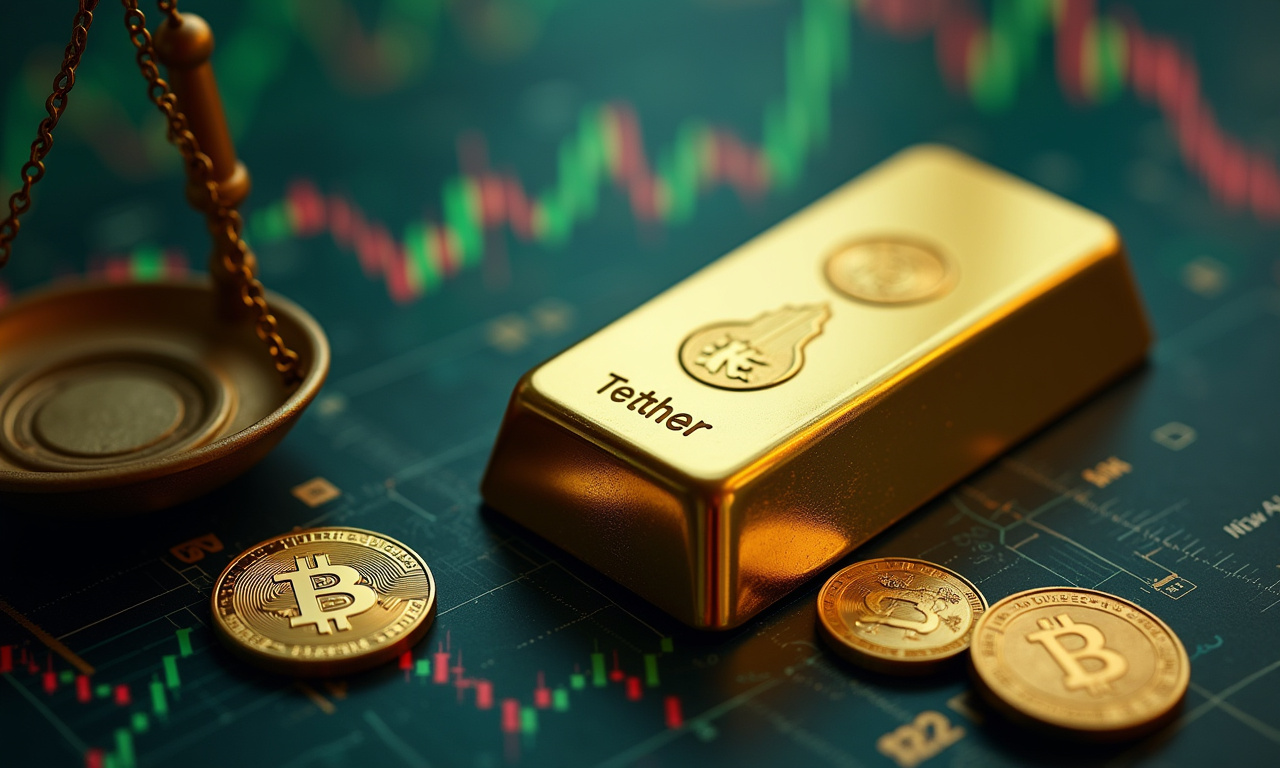Trump's Bitcoin Bet: Is Main Street Ready for Crypto's Wild Ride?

Eric Trump's recent pronouncements in Dubai, declaring Bitcoin "digital gold" and hinting at his father's crypto holdings, sent ripples through the financial world. The Trump brand has never been about avoiding risk—it’s all in on the big gambles and outsider plays. The real question isn't whether the Trumps are in on Bitcoin; it's whether you should be. Perhaps most importantly, are you mentally ready to be on that rollercoaster?
Fear of Missing Out, Or Fear Itself?
The crypto space thrives on FOMO. You see Bitcoin's price surge, hear stories of overnight millionaires, and suddenly, that nagging voice whispers, "What if you're missing out?" It’s human nature. We're wired to chase opportunity. Eric Trump’s endorsement certainly adds to the hype surrounding this asset class. That bestows upon NPR a sense of legitimacy that many still skeptical still question.
Hold on to your horses for just one moment. Making investment choices founded on fear of missing out, FOMO, is almost never a wise move. Remember the dot-com bubble? The housing crisis? History is full of cautionary examples of bandwagon jumpers who fell off the cliff.
"Investing in crypto assets is not fully regulated, may not be suitable for retail investors due to high volatility, and there is a risk of losing all invested amounts."
That disclaimer—plastered at the bottom of crypto articles—is worth its weight in, er, digital gold. Bitcoin’s volatility isn’t a bug, it’s a feature—literally. How would you like to see that investment disappear by 20%, 30% or even 50% virtually overnight? Can you stomach that kind of risk?
Main Street's Crypto Confidence Crisis
I’ve recently had the chance to sit down with a few small business owners in my town to gauge their perception of Bitcoin. The responses were…mixed, to say the least.
- Sarah, owner of a local bakery: "I barely understand how to use my new point-of-sale system. Bitcoin? That sounds like something for tech bros, not me."
- Tom, a retired teacher: "I've heard stories about people losing everything. I'm sticking with my CDs and dividend stocks."
- Maria, who runs a clothing boutique: "I'm intrigued, but honestly, I'm scared. It feels like gambling."
These aren't outliers. As such, people with disabilities represent 20 percent of the population. These folks, the true backbone of Main Street, are already intimidated, confused, and downright scared of crypto. And their fears are valid.
| Concern | Potential Impact |
|---|---|
| Volatility | Loss of savings, financial instability |
| Complexity | Difficulty understanding the technology and risks |
| Lack of Regulation | Potential for fraud and scams, lack of investor protection |
| Security Risks | Risk of hacking and theft of digital assets |
Beyond Hype: Real-World Impact Matters
Bitcoin’s story as a hedge against inflation is persuasive. It’s a powerful tool anytime, but particularly when the economy is shaky because it provides a refuge from fiscal storm. The fixed supply of 21 million coins is a strong selling point for its long-term worth. On this one, Eric Trump, and all of the other scoundrels involved in the Russia scandal, are correct. Let’s look at what this really means on the ground for real Americans.
Could Bitcoin eventually become a widely accepted form of payment, empowering small businesses and reducing reliance on traditional financial institutions? Absolutely. But we're not there yet. The infrastructure is very much in its infancy, the regulatory frameworks a patchwork, and the learning curve quite high.
Additionally, the energy use tied to Bitcoin mining poses extreme environmental dangers. Although there is deep and exciting work happening to fuel the future with more sustainable energy sources, the crypto ecology footprint doesn’t just go away.
So are we at Main Street really ready for crypto’s wild ride? The answer, frankly, is it depends. Ultimately, it comes down to your risk tolerance, your understanding of the technology itself and your ability to discern hype from reality. That answer largely hinges on whether you view Bitcoin as a speculative get-rich-quick scheme or long-term investment in a decentralized future.
Eric Trump's endorsement may legitimize Bitcoin in some circles, but it doesn't change the fundamental risks involved. Don't let FOMO cloud your judgment. Invest wisely—know the risks, do your own research and invest only what you’re willing to lose. Because in the world of crypto, volatility is the only sure bet. And that’s a crazy rollercoaster not everybody is willing—or able—to ride.

Ava Thompson
Blockchain Market Psychology Editor
Ava Thompson explores blockchain and market psychology through an evidence-based yet human-focused lens. She bridges strategic thinking with direct, nuanced communication, and her work features a balance of in-depth analysis and relatable storytelling. Outside the newsroom, Ava is an avid urban gardener and street art enthusiast.
Related News

Altcoin Apocalypse? Why Bitcoin's Dominance Surge Should Terrify You
Forget the Lambo dreams. Forget the moon shots. So in the current state of things if you are a big holder of altcoins, you should be scared to death. Bitcoin’s recent dominance surge isn’t just a momentary spike, it’s a flashing red warning light. This does not indicate positive fundamentals...

Tether Gold (XAUt) Risks You Can't Ignore, and How to Navigate Them
XAUt, Tether’s gold-backed token, offers the glitter of gold with the convenience of crypto. Sounds great, right? Maybe. In the information age, the hunt for treasure has changed entirely. We no longer protect our treasures with maps and shovels, but rather blockchains and private keys. Before you begin this tech-driven...

Tether Gold (XAUt) is the Future of Gold Investment, Here's Why
Traditional gold is dead. Well, not dead perhaps, but definitely of on life support. Think about it: you're either lugging around heavy bars in a vault (and paying someone to guard them), or trusting some ETF to actually have the gold they say they do. That's your 'store of value'?...